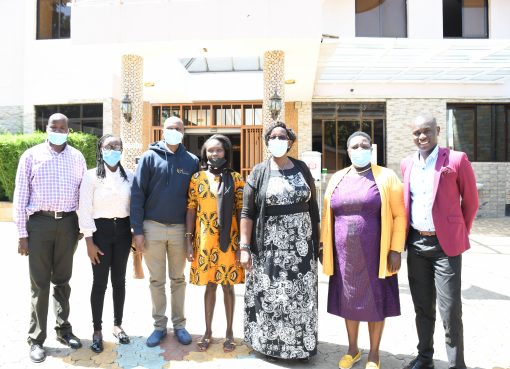As the world observes World Breastfeeding week, the Ministry of Health organized a sensitization forum for the media themed Enabling breastfeeding: Making a difference for working parents that shed light on the immense benefits of breastfeeding for both the child and the mother.
The focus of the event was to establish a working relationship with media partners to highlight the crucial role of breastfeeding in promoting child survival, health and overall well-being.
Speaking during the event, the Director of Nutrition and Dietetics Services at the State Department for Public Health and Professional Standards Veronica Kirogo said that the government was committed to collaborating with media professionals in their continued efforts to support working parents and raise awareness about the importance of breastfeeding.
“Breast milk is a nutritional powerhouse for infants, providing all the essential nutrients they need in the first six months of life. It acts as a powerful immunization against life-threatening diseases, preventing 54 percent of diarrhea and 32 percent of respiratory infection episodes. Moreover, breastfeeding can reduce infection-related mortality by 88 percent among infants less than three months old,” Kirogo said.
“Kenya has seen a remarkable growth in exclusive breastfeeding for children under the age of six months. This is because we have made sustained development for the improvement of breast-feeding status by improving the policies, guidelines and legislative frameworks in the workplace that guarantee the basic nutrition of every child in line with our constitution,” she added.
She noted that there had been a significant increase in the proportion of children exclusively breastfed in the first six months from 32 percent in 2008 to 73 percent in 2022 as demonstrated by the Kenya Demographic Health surveys.
A spot check by KNA revealed that career women face numerous challenges in maintaining the 6-month rule of exclusive breastfeeding, due to lack of facilities that allow them to express milk while at work.
Kirogo said many organizations do not have a friendly environment that allows lactating mothers to express milk and store it for later when they get home. The mothers are therefore forced to make do with office stores, parking lots and in worst case scenarios, toilets.
She noted that nonetheless, employers are now realizing that supporting breastfeeding mothers resulted in lower medical costs and lower absenteeism rates and have introduced spaces for breastfeeding mothers to express and store breast milk in private, comfortable and hygienic conditions.
Speaking to KNA, Rose Ndunge, a primary school teacher and mother of a five-month-old infant said she had had to introduce her baby to alternative feeding methods after she resumed work when her maternity leave period ended as there was no place for her to express or store breast milk for her baby during working hours.
“I had every intention to practice exclusive breastfeeding with my child but unfortunately it has proven to be impossible as my workplace did not offer me the necessary support I needed,” she said.
In response to this, Kirogo stated that the Health Act, 2017 has provisions for the support of breastfeeding at the workplace, while the Employment Act, 2007 provides for maternity protection and Legal Notice No. 184 on Breast Milk Substitutes (Regulation and Control) (General Regulations), 2021, came to effect on 30th May 2022.
She also expressed the government’s intention of increasing workplace support for breastfeeding mothers in the future and thus emphasized the need for a strong and constructive partnership with the media that ensured accurate and impactful information reached the public in regards to the life-giving power of breastfeeding.
The world breastfeeding week is championed by the World Alliance for Breastfeeding Action (WABA) in 170 countries including Kenya.
By Hellen Lunalo



